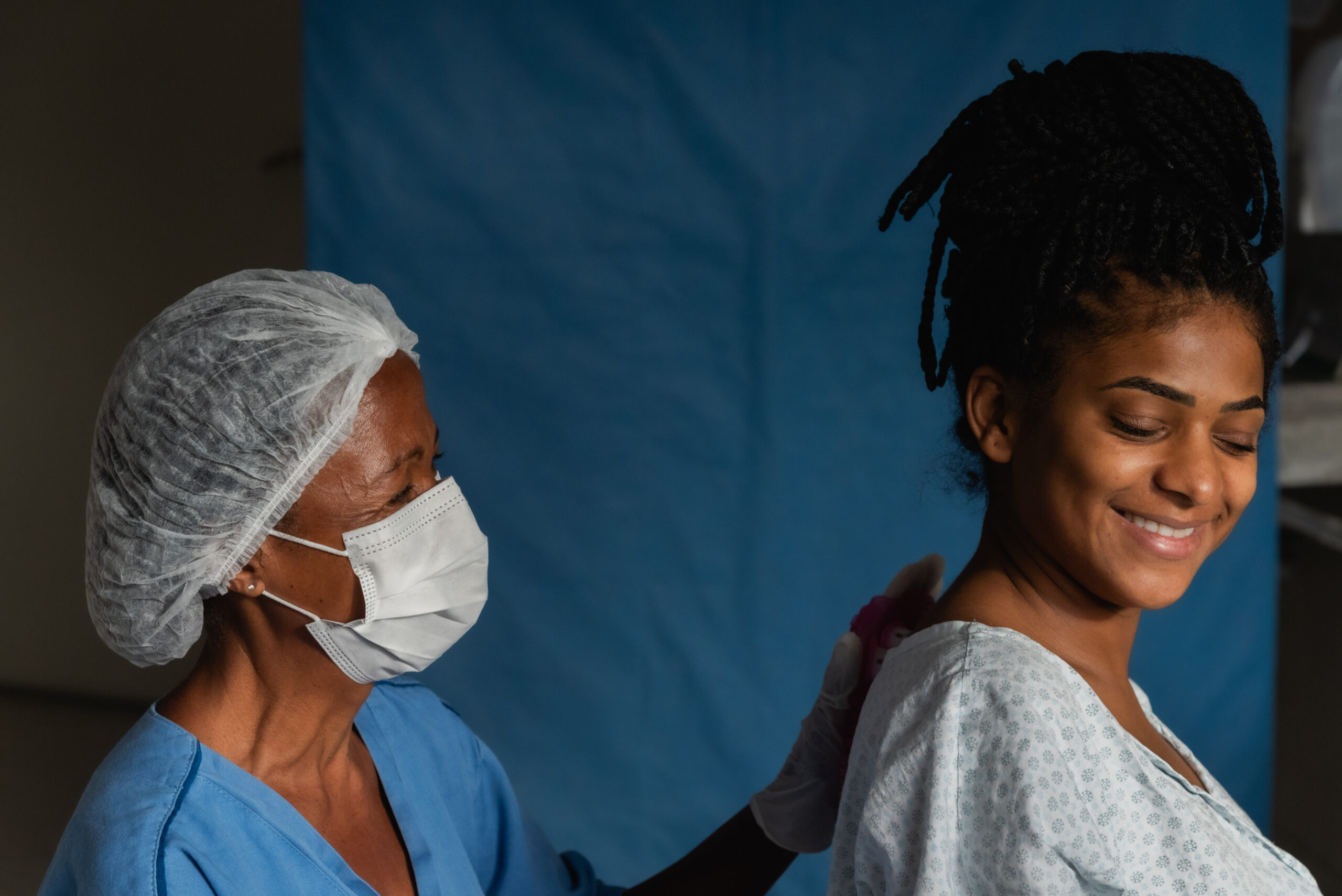One Mott Haven resident has a unique insight into the role doulas can play for Bronx families who are expecting.
Evelyn Alvarez, founder of the grassroots group Bronx Rebirth, refers clients looking to connect with doulas, and to lactation consultants for prenatal and postpartum care. Alvarez is hopeful more Bronx families will make use of the free service.
“I think that it’s now time to figure out how to more meaningfully and successfully integrate doula support into how we navigate pregnancy, especially locally,” said Alvarez.
One Bronxite, Sabine Golding, said she hired a doula for advice and physical help through the birth process and beyond.
“I felt loved and didn’t feel alone,” Golding said, noting it inspired her to train to become a doula herself.
Today, Golding is one of many doulas helping 197 families in the Bronx, and hundreds more across the city at no charge.
Mayor Eric Adams launched The City Wide Doula initiative earlier this year in an effort to address high rates of maternal and infant mortality that have plagued communities of color for years. Black women are nine times more likely to die of a pregnancy-related cause than white women, and their babies are three times more likely to die, according to the mayor’s office. Infant mortality among Puerto Ricans is twice that of white New Yorkers. Adams pointed to systemic racism as the cause.
Golding recently helped a client to create a birth plan and showed her different physical positions to ease labor progression. Together, they practiced breathing techniques for pain management so the client could labor at home for as long as she could. They discussed birth physiology, to identify the stages of labor and listen to her body.
She stayed with the client at home after contractions began, then accompanied her to the hospital, where the client gave birth 20 minutes later.
Golding says she tries to minimize the amount of time clients have to spend in the hospital.
“Once they get to the hospital and put you on IV, you’re not allowed to get out of the bed,” she said, explaining that cumbersome process makes giving birth more difficult.
Golding received her training at Ancient Song Doula Services, a reproductive health nonprofit that trains and organizes doulas. The city’s Department of Mental Health and Hygiene pays registered doulas, who help up to 500 women of color with the service.
The World Health organization has recommended that doulas attend births globally, based on evidence that direct doula support has improved outcomes for parent and child. Doulas can offer families help with preparing for a baby, stress relief techniques, knowledge of birth processes, as well as emotional and physical support.
After a baby is born, the post partum work begins to ensure the birthing parent is healing well.
Clients often prefer to meet in person for most of the sessions or over video if needed, according to Golding.
Under the new citywide initiative, agencies like Ancient Song Doula Services train the doulas and pair them with mothers-to-be. Doulas remain on call for their clients, arranging six appointments with each – typically three before birth and three afterwards, depending on the specific client’s needs. They earn $400 per visit.
Chanel Porchia-Albert, founder and executive director of Ancient Song Doula Services, is confident the doula initiative will have a positive impact, but she worries that doulas still do not earn a living wage, and anticipates that demand for their services is on the uptick.
Long-term, Porchia-Albert said, community-based healthcare organizations like hers will need funding to provide full-time employment for doulas, to avoid a high turnover rate and to cover associated administrative costs for overseeing the program.

